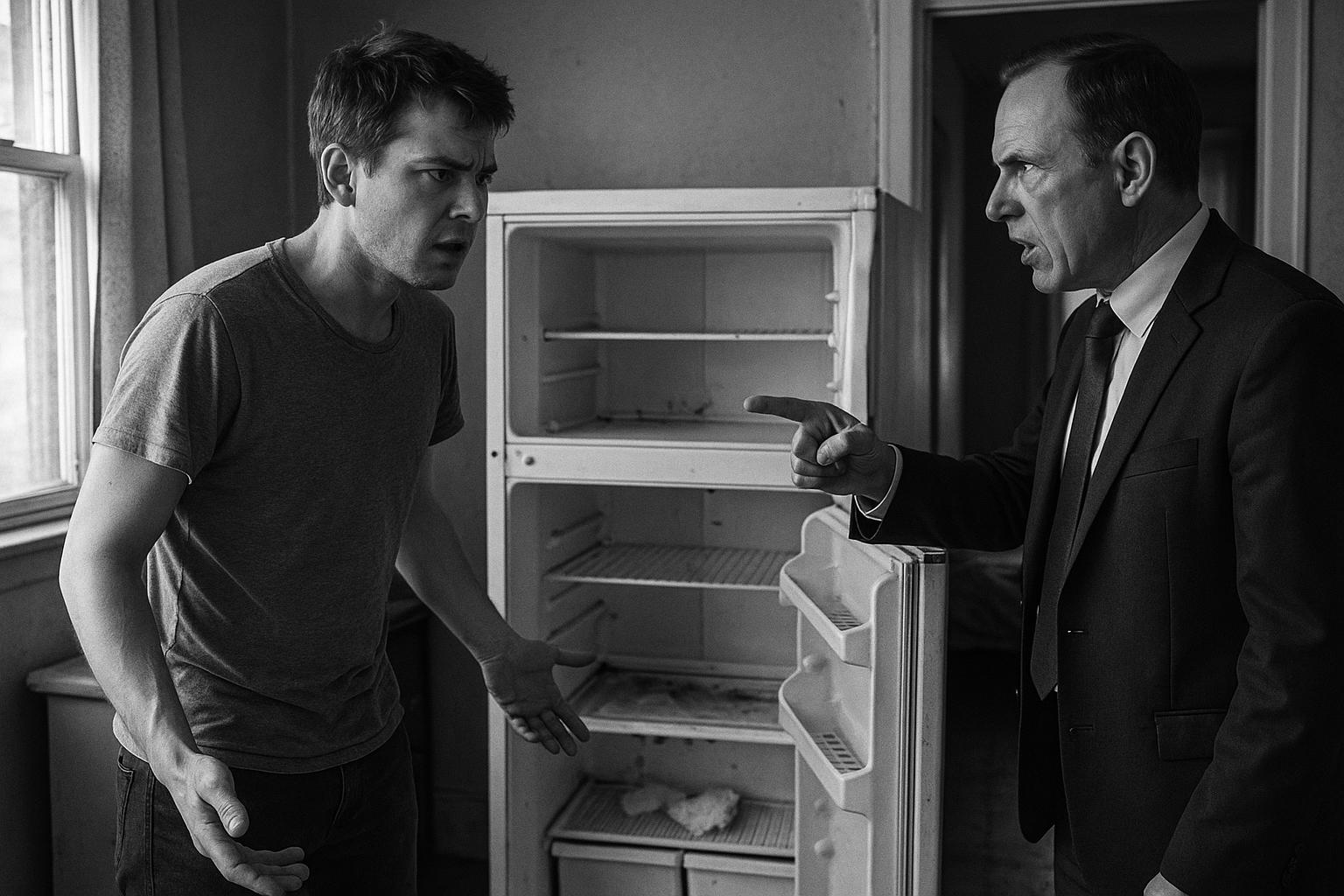A dispute has erupted between a group of four tenants and their landlord over the landlord's insistence on placing a broken extra refrigerator inside the tenants' already cramped apartment, sparking outrage and debate about renters' rights. The landlord claimed that the downstairs refrigerator had broken and decided to bring the faulty appliance upstairs to the tenants’ unit, even suggesting it be stored in their hallway closet despite a clear lack of space. The tenants protested that their living area simply could not accommodate the appliance, highlighting the disruption such an arrangement would cause, including potential noise disturbance for a housemate’s bedroom situated near the proposed fridge location.
According to the tenants’ account, the landlord firmly refused their requests to store the fridge elsewhere, dismissing suggestions such as keeping it in her own garage and making the tenants accept it regardless of their objections. When the tenants cited tenancy laws affirming their right to refuse unnecessary appliances that would intrude on their living space and increase utility costs, the landlord retorted with threats and insisted on compliance. She even floated the idea of removing part of the kitchen to make room for the fridge, a proposal the renters found unreasonable.
The tension escalated further as the landlord demanded the tenants be home for a wide time window to allow movers and repair technicians access, while the tenants preferred to handle discussions in writing for documentation purposes. Supporters of the tenants on social media condemned the landlord’s conduct as “completely unacceptable,” emphasising that landlords cannot use rented premises as personal storage spaces. They pointed out that tenants are entitled to the full use of the space they pay for and should not be burdened with unwanted appliances.
Experts on tenancy law clarify that if landlords provide appliances as part of a rental unit, they generally bear responsibility not only for maintaining these devices in proper working order but also for ensuring their placement does not interfere with tenants’ enjoyment of the property. A landlord cannot typically force tenants to accept extra appliances not stipulated in the lease, especially if doing so would disrupt living conditions. The lease agreement often governs specific responsibilities, but the overarching landlord duty to maintain a habitable environment remains paramount. Where appliances malfunction, landlords must repair or replace them but are not entitled to impose unwarranted burdens such as forcing tenants to accommodate broken equipment.
Legal guides reinforce tenants’ right to seek remedies if landlords fail to maintain habitability or cause unreasonable living conditions, ranging from withholding rent to lease termination, always advising thorough documentation of communications. Similarly, landlords’ obligations include maintaining appliances in good working order without shifting undue inconvenience or costs onto tenants. In this case, the landlord’s approach appears to contradict these principles by both imposing an unusable appliance and dismissing tenants’ reasonable objections.
As the conflict gained viral attention online, thousands expressed disbelief over the situation's escalation centered around a single fridge. The landlord’s insistence combined with the tenants’ determination to protect their living conditions leaves the dispute unresolved, underscoring ongoing tensions in rental housing regarding space utilisation, property maintenance, and tenant protections.
📌 Reference Map:
- Paragraph 1 – [1]
- Paragraph 2 – [1]
- Paragraph 3 – [1], [7]
- Paragraph 4 – [1], [7]
- Paragraph 5 – [2], [4], [5], [6]
- Paragraph 6 – [3], [4], [7]
- Paragraph 7 – [1]
Source: Noah Wire Services
